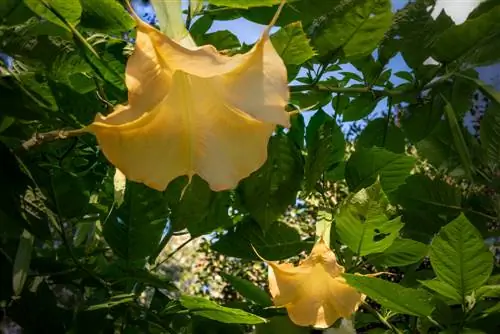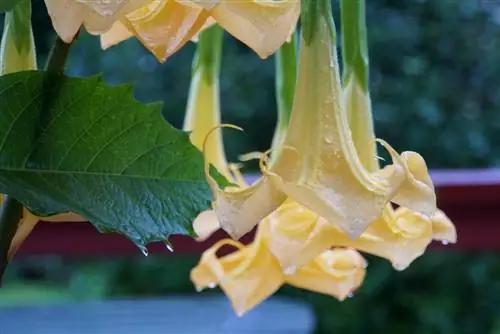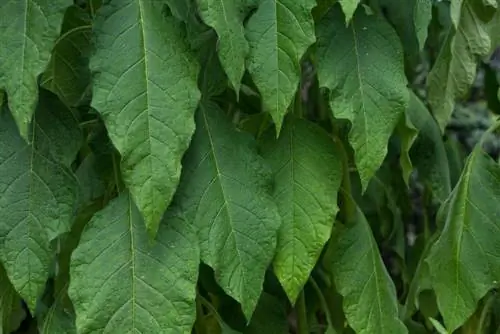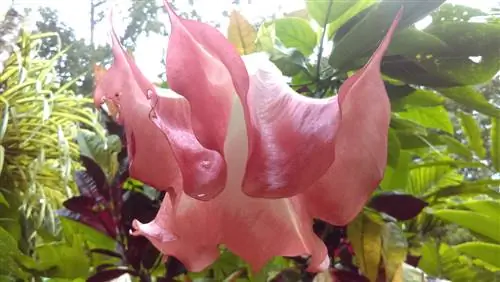- Author admin leonars@hobbygardeners.com.
- Public 2023-12-16 16:46.
- Last modified 2025-01-23 11:21.
Angel trumpets receive a lot of admiration from everyone with their magnificent flowers. Like many other ornamental plant beauties, you shouldn't allow yourself to be blinded too much - because the nightshade plant is highly poisonous.
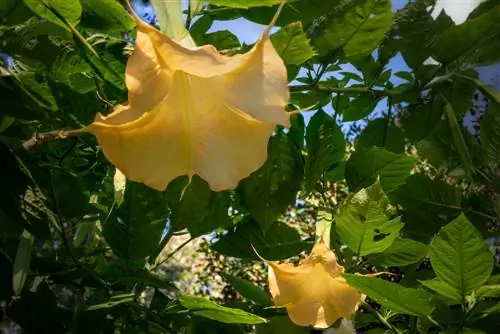
Is the angel's trumpet poisonous?
The angel's trumpet is poisonous due to its alkaloids, especially scopolamine, hyoscyamine and atropine. All parts of the plant are poisonous, with roots and seeds being the most poisonous. In lewd species, the scent of the flowers can cause mild symptoms of poisoning.
How poisonous is the angel's trumpet?
The angel's trumpet is one of the nightshade plants, which are generally poisonous in one way or another. Like most species in its family, angel's trumpet contains many alkaloids, especially scopolamine, hyoscyamine and atropine. These substances ensure that all parts of the plant are highly toxic. The roots and seeds are the most poisonous. However, it is important to know that in today's breeding forms the toxins are often largely eliminated.
- Angel Trumpet Poisons: Alkaloids
- All parts of plants are poisonous, especially roots and seeds
- Creed varieties partly reduced in toxicity
Dangerous doses
In unbred species, however, the scent of the flowers, which is a warning signal due to its severity, can cause slight symptoms of poisoning. These manifest themselves in mild anesthetic effects, headaches and possibly even nausea with vomiting.
However, it only becomes really dangerous when parts of the angel's trumpet plant are eaten. A dose of around 0.3 g is already considered risky. The effect only becomes apparent about 2-4 hours after ingestion and is expressed in severe skin irritation and increased temperature, nausea and vomiting, restlessness and confusion, visual disturbances, increased pulse rate and severe thirst. Higher doses can also lead to convulsions, severe agitation and tantrums.
Measures
If an admirer who is a little too curious or a small child has ingested something from the angel trumpet, countermeasures must be taken as quickly as possible. If medical charcoal (€11.00 on Amazon) is available, it should be administered immediately - it binds the poison and removes it from the body. However, through the natural reaction of vomiting, the body tries to get rid of the poison itself.
You should also call an emergency doctor or contact the poison emergency center straight away. Keep checking the patient's vital bodily functions until help arrives.

